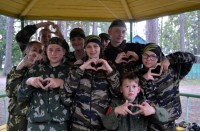 Recommend
Recommend
 All camps
All camps
 Russia
Russia
 Pskov
Pskov
 Military-patriotic camps
Military-patriotic camps
 For children
7 - 17 years old
For children
7 - 17 years old
 Vympel-Storm. Adventure island
Vympel-Storm. Adventure islandVympel-Storm. Adventure island
Russia, Pskov , USB "Dinamo (On the map) ID 9045
The "Island of Adventures" program is one of the areas of additional education for children, it is a comprehensive means of comprehensive development of the child's personality, its effective self-realization in society. A variety of forms of activity provide an integrated nature of tourist and local history activities in the education, upbringing and rehabilitation of children, it has ample opportunities for creative children's initiative - sports, recreational, social, artistic, technical
| Base: | USB "Dinamo | |
| Region: | Russia, Pskovskaya oblast' | |
| Nearest city: | Pskov, 36 km | |
| Age: | for children 7 - 17 years old | |
| Address: | Pskovskaya oblast' Pechorskiy r-n derevnya Kot'ya Gora
(on the map: address and route) |
|
| Transfer accompanied by an adult: | from Pskov | |
| Number of children: | 160 | |
| Start year of work: | 2016 | |
| Documents: |
** Note: Parents make sure that the children have their teeth cured before the start of the camp. |
|
| Company: | Псковская региональная общественная организация "Военно-патриотический клуб "ШТОРМ" | |
| Company registration number: | 6025999258 | |
| Certificates and awards: |
|
|
| Do you like this camp? Tell your friend |
The camp is located on the territory of a particularly valuable object of the cultural heritage of the peoples of Russia – a unique monument of Russian culture of national and world importance of the State Museum-Reserve A. S. Pushkin " Mikhailovskoye ".
Within the boundaries of the Pushkin Reserve, there are 62 cultural heritage sites, including:
- « Famous place associated with the life and work of A. S. Pushkin in the village of Mikhailovsky and its surroundings » ;;
- 53 federal property;
- 44 sites of archaeological heritage of federal significance;
- 9 regional objects.
The camp is located 120 km. southeast of Pskov in the heart of the Pskov region, near the St. Petersburg highway – Kiev, 400 km. from St. Petersburg and 650 km. from Moscow on the outskirts of the estate « Petrovskoe » Pushkin Museum-Reserve "Mikhailovsky", near Lake Kuchan.
Campsite belongs to the category of stationary tent camps in full accordance with SanPiN 2.4.4. 3048-13 dated May 14, 2013. In the season of 2016, the camp was accepted to work by the interdepartmental commission on July 01, 2016.
On the territory of 6.5 hectares there are 15 tents of special metal construction with double walls of tent fabric. Tents are located on a wooden podium on screw piles. Each tent is designed for 8 people (3 or 4 bunk beds). Anti-mosquito net. Total capacity up to 120 people.
General Sanitary Area
Equipped showers: 20 showers, 24 sinks. Hot water from its own boiler.
Equipped toilets: 18 toilets, 12 sinks. Own autonomous septic tank.
Own laundry for individual washing of children's clothes (if necessary).
Warehouse for storing your sports or theater props.
Facilities for events
Concert hall with a stage for events, an area of 150 square meters.
Sound equipment.
Futsal field, volleyball court.
Sports equipment, four rowing boats with life jackets for 20 people.
Hiking equipment.
Equipped with 6 detachment awning places for outdoor activities.
Headquarters, vozhatskaya and medical center
Fully equipped with furniture, equipment and equipment, ready-to-work specialized workspaces. Headquarters and vozhatskaya located in tents of 35 square meters. meters, medical center / insulator – 25 sq. M. meters Electrified. If necessary, satellite Internet can be connected.
Own kitchen, certified to all necessary standards SanPiN. Tent dining for 150 people.
We have everything you need to implement a program – sports grounds, tents for master classes, an assembly hall with a projector and sound equipment, sports equipment and equipment for a hiking trip, open detachment places under tents and equipped places for a fire.
We coordinate work with the Pushkin Reserve, which prepared amazing children's excursions and quests.
| Rooms: | 6 |
| Facilities (toilet): | shared, on the floor |
| Food: | five |
| Area: | 80 000 m2 |
concert hall, playground, stadium, football field
Security and health services:
The camp is guarded by private security and the security department of the museum-reserve "Mikhailovskoye".
A pediatrician is in the camp around the clock.
Main program:
The program is designed for children and adolescents from 7 - 17 years and implies an active weekly or two-week stay for a child in a non-standard setting field camp.
This program provides the opportunity for every child to participate in the most important types of human activity: communicative, sports, labor, cognitive, play, aesthetic, creative and enables every child to express themselves in these types, thereby creating the conditions for a situation of success.
The selection of the content of activities and the duration of the shift are determined by the features of the temporary autonomous stay of children in a campground, the intellectual and mental characteristics of children.
Such characteristics of a temporary children's collective as the collection of the composition, short duration of existence, relative autonomy, collective activity, completeness of the activity and development of the collective, the marginal emotionality of events have a significant positive impact on the behavior of boys and girls, the organization of the detachment’s life, the realization of its functions and educational opportunities .
At the same time, stress factors for adolescents are: relatively long isolation from the usual habitat; lack of familiar services and comfort; relative restriction range communication . &np p &p &p &p &p &p &p &p &p &p &p &p &p &p &p &p &p &p &p &p &p &p &p &p &p &p &p &p &p &p &n &p &p &p &p &n &p &p &p &p &p &p &p &p &n &p &p &p &n &p &p &p &p &n &p &p &p &n p &p &n &p &p &p &n &p &p &p &n &p &p &p &n &p &p &p &p &n &p &p &p &p &n &p &p &p &p &p &n &p &p &p &n &p &p &p &n &p &p &n &p &p &n &p &&asp &&o; ; Therefore it is necessary to take into account the peculiarities of the character and behavior of children with disabilities; lack of familiar entertainment; restriction of communication opportunities (usual means of communication); restriction of transport opportunities; the monotony of food; adverse weather conditions; significant physical exertion; the presence of blood-sucking insects.
;
1.Safety in the campaign.
Rules of conduct in the forest during a tourist walk.
Rules of conduct during various natural phenomena. Natural disasters in the region. Rules of conduct in the forest when a source of smoke or a source of fire is detected.
Execution of orders of the hike manager.
Drinking mode during the hike. First Aid.
1.2. Personal equipment tourist and care for him.
Personal equipment for three hundred trips: backpack, shoes, clothing (sports suit, jacket, pants, windbreaker, socks, headgear), travel mat, sleeping bag, personal dishes, hygiene products, mosquito and tick protection, personal medaptechka, protection from rain, remnabor, matches, flask.
2. Topography. Terrain orientation.
The drawing and the simplest plan of the area. The image of the area in the picture. Map.
Legend. Terrain, horizontal, berg. Compass. Azimuth. Orientation on the terrain (sun, stars, trees, etc.).
Practical exercises. Measuring distance on the ground in steps. Mastering the skills of reading charts and maps. Movement according to the scheme and map, azimuth. Work with a compass. Orientation on local signs without a compass.
4. First aid.
First aid for bruises, abrasions, burns, various injuries. Rules for the treatment of wounds and dressings. Prevention of food poisoning. Help with poisoning. Help with heat and sunstroke. First aid kit. Transportation of the victim. Ventilation and indirect heart massage.
Practical exercises. Dressing with elastic bandages « injured » parts of the human body. Work with a dummy.
5.Turistic technique and mountaineering.
Ways and rules to overcome artificial and natural barriers. Technique to overcome the descents and ascents. Safety systems. Carabiners and ropes. Tourist and special sites. The order of movement on the route. Safety. Options for self-insurance and command insurance. The rules of the competition for hiking (mountaineering). &Nbsp;
Practical exercises.
Practicing skills of tying tourist sites: a simple knot, a straight knot "eight" », counter « eight ra;, knot conductor, bayonet knot, Austrian conductor, knot Bulin (arbor). Dressing the safety system. Work with ropes and carbines. The passage of the distance is not the time.
Crossing the conditional swamp over bumps. Crossing the log, descent and ascent. Traverse, parallel and hinged crossing, butterfly, pendulum.
6. Sleeping in autonomous conditions.
Psychological aspects of survival in the natural environment. Risk and survival factors. Types and destination tents. Installation and removal of the tent. Bivac or field camp device. The simplest shelters (sheds, tents, wigwam, hut, hole). Needle. Fire safety in the campaign. Requirements for choosing a bonfire site. Rules for making a campfire site. Requirements for extinguishing the fire. Rules for storing brushwood. Safety when working with fire equipment when cooking. Types of fires. Search and purification of water. Extraction of food. Poisonous mushrooms and berries.
Practical lessons
Camping tents for a while. Cultivation of a fire for a while and boiling water. Extraction of fire without matches. Campfire in wet weather.
Campfire workshop in various ways on a camping trip: « Hut »
« Asterisk » ;, « Well » ;, « Nodia » ;, « taiga » bonfire Filtering and boiling water. Identification of poisonous plants and fungi.
7. Fire training.
Safety. Air rifle shooting. Archery.
Exercise. Practicing the skills of shooting from pneumatic weapons and bow.
8. Competitions in tourist all-round.
Practical exercises. Practicing sports and travel skills.
9. Spiritually – moral education. Games.Contests, quizzes.
Day schedule:
Day mode
|
07.00 - 07.10 |
Lifting |
|
07.10 - 07.40 |
Morning physical exercises |
|
07.40 - 08.10 |
Morning toilet, bedding, cleaning of premises and territory. |
|
08.10 - 08.20 |
Morning inspection |
|
08.20 - 08.50 |
BREAKFAST |
|
09.50 - 10.00 |
Morning building. Divorce classes |
|
09.00 - 10.30 |
1 study session |
|
10.30 - 10.40 |
Break |
|
10.40 - 12.10 |
2 study session |
|
12.10 - 12.30 |
Preparing for dinner |
|
12.30 - 13.00 |
LUNCH |
|
13.00 - 14.00 |
Personal Time |
|
14.00 - 15.30 |
3 study session |
|
15.30 - 15.50 |
FULL |
|
15.50 - 17.10 |
4 Training Lesson |
|
17.10 - 17.20 |
Break |
|
17.20 - 18.50 |
Sports, cultural - mass events |
|
18.50 - 19.00 |
Preparing for dinner |
|
19.00 - 19.30 |
DINNER |
|
19.30 – 20.00 |
Personal Time |
| 19.30 - 21.00 |
Lesson on spiritual and moral education |
|
21.00 - 21.20 |
EVENING |
|
21.20 - 22.00 |
Evening event, bonfire |
|
22.00 - 22.10 |
Evening calibration |
|
22.10 – 22.30 |
Evening toilet |
|
22.30 |
END |
Video about camp:
| Payment methods: |
|
| Price included: |
|
| Not included in the price: |
Transfer to the city of Velikie Luki, Pskov region and back. |
| What to take with: |
All things should be signed. The child is responsible for the safety of their belongings. It is recommended that take the child with a small traveling first-aid kit, which would include a bactericidal plaster and individual means. Signed first-aid kits Be sure to pass to teachers / commanders for painting. In case the child is prescribed special medications for permanent use, they are given to the doctor camp. Forbidden to take:
|
26 february 2025
Veronika Fyodorovna about «VPL "Vyimpel-Shtorm"» (boy 11 years old)
+ Positive
- Negative
12 november 2024
Irina Andreevna about «Vyimpel-Shtorm» (boy 8 years old)
+ Positive
- Negative
02 november 2024
Viktoriya Alekseevna about «Vyimpel-Shtorm» (boy 11 years old)
+ Positive
- Negative
• Answer from camp
Благодарим за столь высокие оценки нашему лагерю.
Приглашаем Максима посетить наши смены и в другое время года, т.к. мы работаем круглогодично.
Надеемся увидеть его еще не раз в лице наших курсантов.
01 september 2024
Irina Viktorovna about «VPL "Vyimpel-Shtorm"» (boy 13 years old)
+ Positive
- Negative
• Answer from camp
Благодарим за ваш отзыв.
Будем рады видеть Михаила на наших сменах и следующем сезоне!
31 august 2024
Aleksandr Aleksandrovich about «Vyimpel-Shtorm» (boy 9 years old)
+ Positive
- Negative
• Answer from camp
Очень приятно что вы так высоко цените то что мы делаем.
Надеемся и в дальнейшем еще много-много раз увидеть Леонида на наших сменах.
26 august 2024
Georgiy about «Vyimpel-Shtorm» (boy 11 years old)
+ Positive
- Negative
23 august 2024
Lyubov' about «Vyimpel-Shtorm» (boy 12 years old)
+ Positive
- Negative
25 july 2024
Yuliya Yur'evna about «VPL "Vyimpel-Shtorm"» (boy 14 years old)
+ Positive
- Negative
22 july 2024
Evgeniy Vyacheslavovich about «Vyimpel-Shtorm» (boy 10 years old)
+ Positive
- Negative
• Answer from camp
Благодарим за столь высокие оценки нашего лагеря.
Будем рады видеть Валерия на наших сменах не только летом, но и на осенних, зимних и весенних сменах.
11 july 2024
Irina Viktorovna about «VPL "Vyimpel-Shtorm"» (boy 13 years old)
+ Positive
- Negative
09 july 2024
Yuliya Igorevna about «VPL "Vyimpel-Shtorm"» (boy 11 years old)
+ Positive
- Negative
15 june 2024
Natal'ya Mihaylovna about «Vyimpel-Shtorm» (boy 9 years old)
+ Positive
- Negative
• Answer from camp
Так приятно получать от родителей слова благодарности и видеть что наш труд не напрасен.
Надеемся увидеть Артёма и на последующих сменах лагеря "Вымпел-Шторм"
17 april 2024
Ekaterina Vladimirovna about «VPL "Vyimpel-Shtorm"» (girl 11 years old)
+ Positive
- Negative
• Answer from camp
Рады что наш труд положительно влияет на наших курсантов. Значит мы всё делаем правильно!
Будем рады видеть вас и в дальнейшем на наших сменах.
08 november 2023
Tokarev about «VPL "Vyimpel-Shtorm"» (boy 8 years old)
+ Positive
- Negative
• Answer from camp
Благодарим Вас за высокие оценки нашему лагерю.
Рады что Денису понравилось, надеемся увидеть его еще не раз в рядах наши курсантов.
09 august 2023
Elena Aleksandrovna about «Vyimpel-Shtorm» (boy 11 years old)
+ Positive
- Negative
• Answer from camp
Благодарим Вас что нашли время написать нам отзыв.
Будем стараться и в дальнейшем радовать вас своей программой.
09 august 2023
Svetlana Vladimirovna about «VPL "Vyimpel-Shtorm"» (boy 9 years old & boy 9 years old)
+ Positive
- Negative
• Answer from camp
Благодарим за столь высокие оценки нашего лагеря.
Надеемся увидеть Макара в рядах наших курсантов не только на летних сменах.
Приглашаем вас принять участие и в новогодней программе.
27 july 2023
Ol'ga Dmitrievna about «Vyimpel-Shtorm» (boy 11 years old)
+ Positive
- Negative
• Answer from camp
Благодарим за отзыв и высокую оценку нашего лагеря.
Надеемся увидеть Максима еще не один раз на наших сменах.
26 july 2023
Natal'ya Sergeevna about «VPL "Vyimpel-Shtorm"» (boy 16 years old)
+ Positive
- Negative
• Answer from camp
Благодарим Вас за столь лестный отзыв и высокие оценки нашему лагерю.
Приглашаем Ростислава принять участие на сменах нашего лагеря и на других площадках.
22 june 2023
Ol'ga Sergeevna about «Vyimpel-Shtorm» (boy 15 years old)
+ Positive
- Negative
• Answer from camp
Благодарим за высокие оценки нашего лагеря, за то что остаётесь верны нам.
Что касаемо вожатой - проведена служебная проверка. Виновные наказаны.
Надеемся что данный случай не повлияет на ваше мнение в какой лагерь отправить ребёнка.
Будем рады видеть Романа и в дальнейшем на наших сменах.
13 january 2023
Anna Sergeevna about «VPL "Vyimpel-Shtorm"» (boy 13 years old)
+ Positive
- Negative
• Answer from camp
Благодарим вас за высокие оценки нашему лагерю.
Очень рады что Ярославу понравилось у нас.
Надеемся увидеть его в наших рядах и на последующих сменах.
-

from $ 688,-
Uspeh(Pskov, Russia)
-
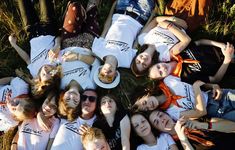
from $ 940,-
Kamchatka(Pskov, Russia)
-

from $ 1 310,-
MULTIRIDERS(Pskov, Russia)
-
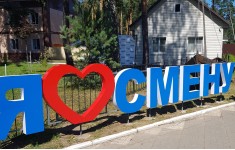
Smena (Smolensk, Russia)
-
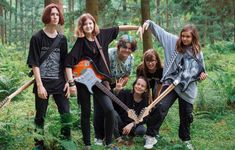
from $ 947,-
Druzhite.ru Myis Roka(Moskva, Russia)
-
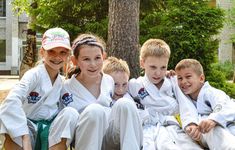
TAEKWONCAMP (Sankt-Peterburg, Russia)
Как проехать: 1. From St. Petersburg: From St. Petersburg to travel on the Kiev highway (highway E95, M20) on the route: Luga, Pskov, Island, Novgorodka (on the 371 km of the E95, M20). In the village of Novgorodka, turn left at Pushkinskiye Gory along the R58 highway to the sign “Pushkin Reserve” (approximately 23 km) and then left again. Further see the diagram below. The total travel time is from 5 to 6 hours. From St. Petersburg to Pushgory there is a daily bus. Bus ride takes 8 hours 2. From Moscow: From Moscow, travel along the Novorizhskoye Highway (E22, M9 highway) along the route: Volokolamsk, Rzhev, Velikie Luki, Pustoshka. In the city of Pustoshka, we turn right onto Opochka and Pskov (onto the E95, M20 highway). Further along the route: Pustoshka, Opochka, Novgorodka. In the village of Novgorodka, take the right onto Pushkinskiye Gory along the R58 highway to the sign “Pushkin Reserve” (approximately 23 km) and turn left again. Further see the diagram below. The total travel time is from 7 to 9 hours. From Moscow to Pushgory can be reached by train (to the station Suschevo), from Suschevo to the camp you can reach in 1 hour (approximately 70 km), if you pre-order a transfer.







































